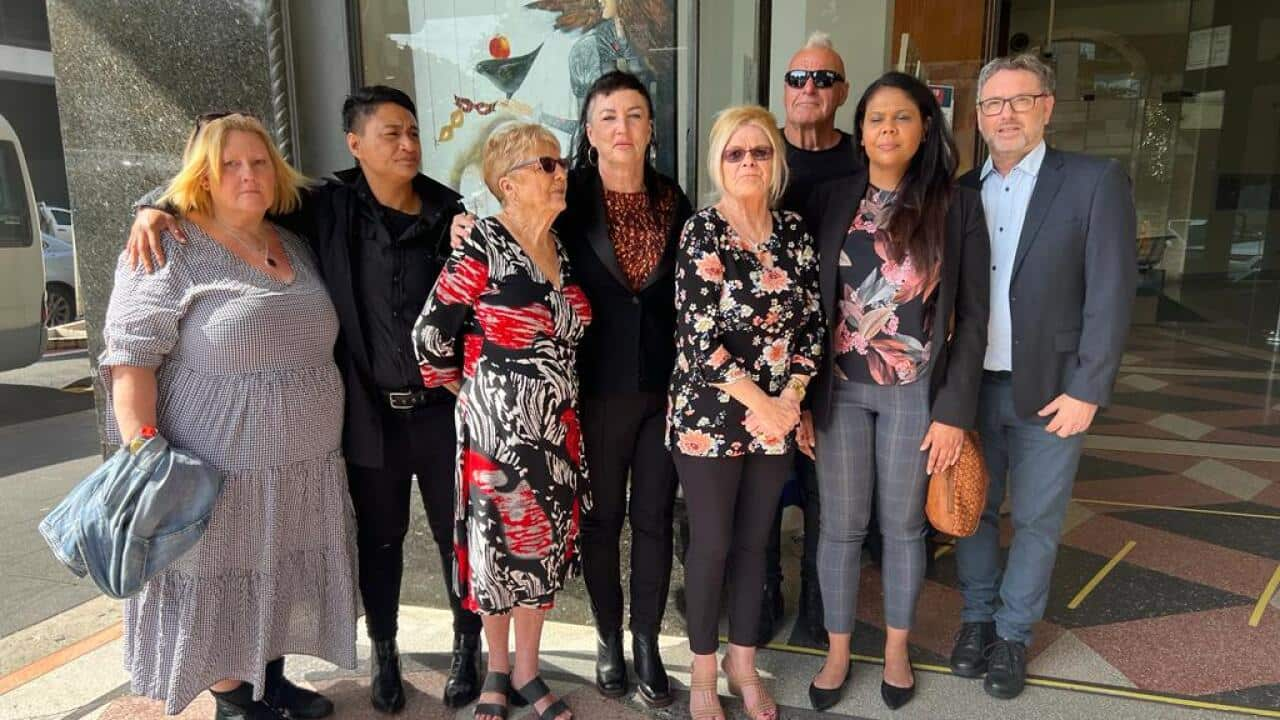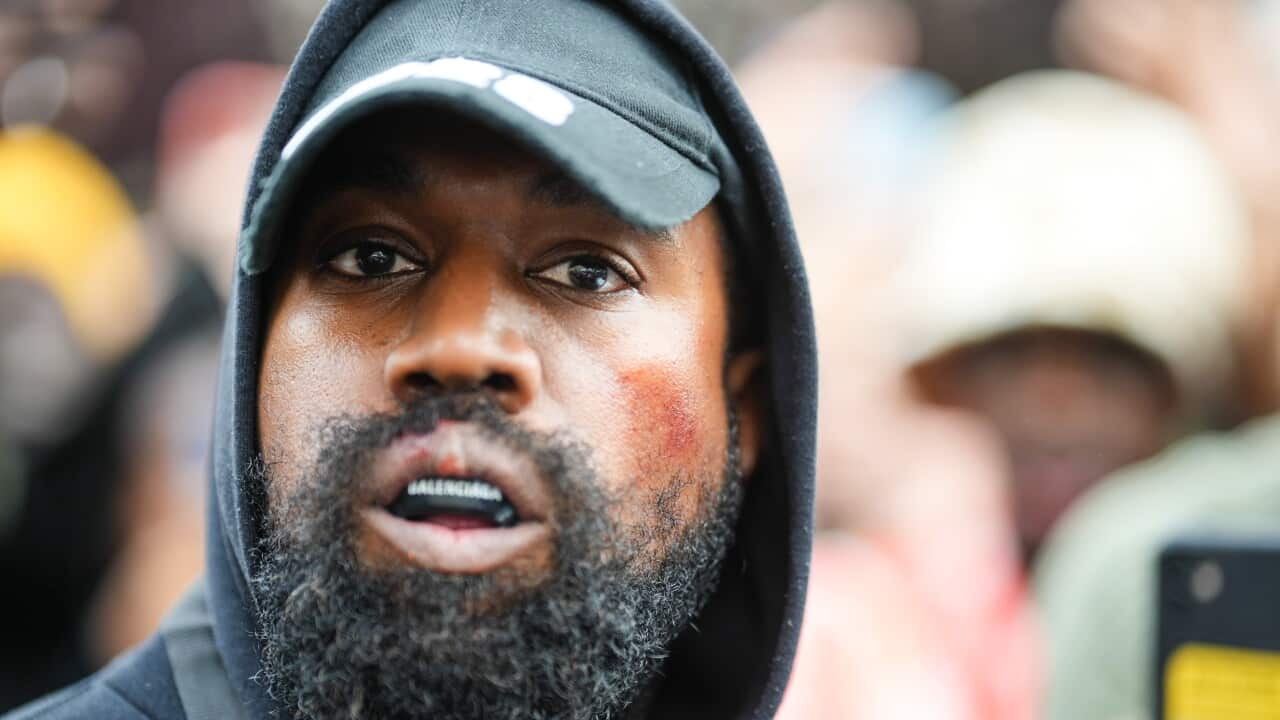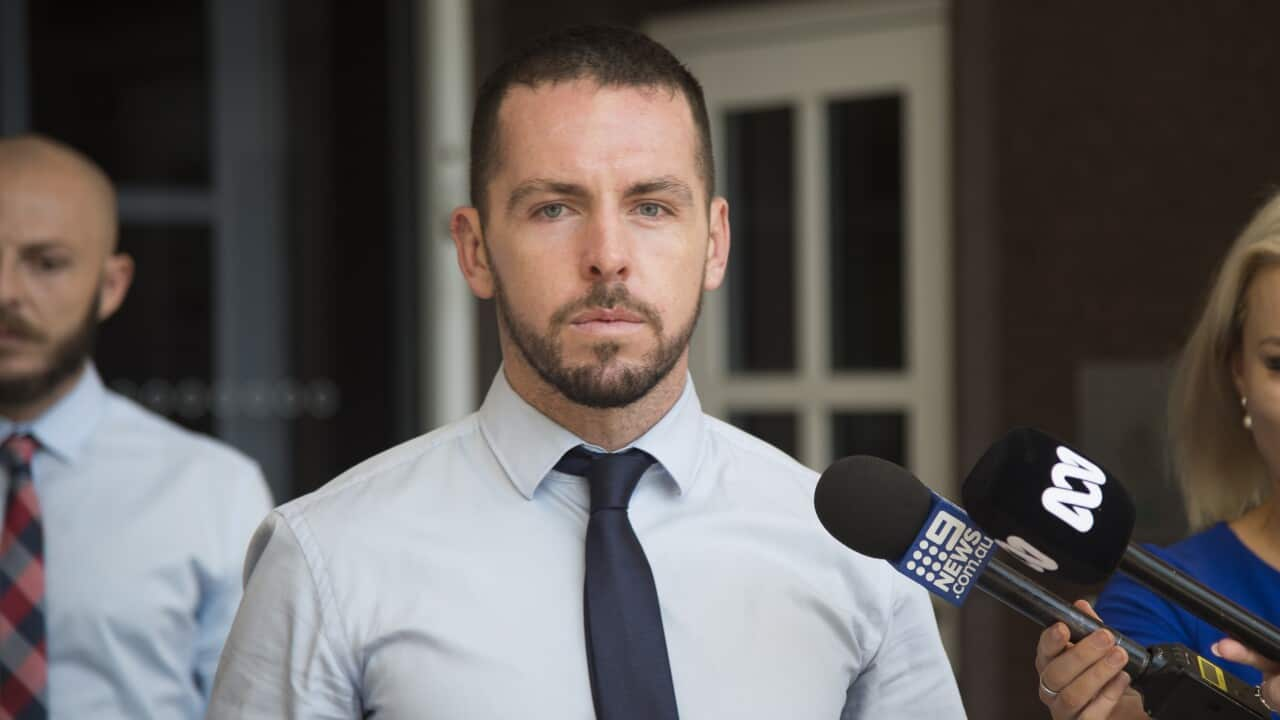In 11 seconds shackled prisoner Dwayne Johnstone slipped two custody officers, ran across a road, up a ramp and was shot in the back.
Those events, captured in grainy CCTV footage outside Lismore Base Hospital on March 15, 2019, form the basis of a murder trial in the NSW Supreme Court that began on Wednesday.
Officer A, as he's known publicly for legal reasons, has pleaded not guilty to murdering Mr Johnstone, who was being escorted out of the hospital when he shoved another correctional services officer and ran.
With his wrists and ankles restrained, the solid, 170cm-tall, 43-yea-old Wiradjuri man moved "at some pace", the jury was told.
As the shoved colleague gave chase, Officer A drew his work-issued revolver and used words to the effect of "Corrections Officer - stop or I'll shoot".
After repeating it a second time, he shouted at his colleague to "get out of the road" and then fired.
The first two shots missed.
The third round, four seconds after the last and at close range, felled Mr Johnstone.
"All this is happening in 11 seconds," crown prosecutor Ken McKay SC said in his opening address on Wednesday.

Mr Johnston died after being shot by a police officer.
"(Mr Johnstone was) posing no risk to any person at the time he was shot," Mr McKay said he expected the evidence to show.
But the defence says Mr Johnstone was heading towards a car park beside the surgery, giving Officer A "very little time indeed to make the decision in terms of discharging his duties".
The accused’s lawyer also argued that the officer was performing his duty as trained when he repeatedly warned Mr Johnstone before shooting.
The jury was told on Thursday, that the officer was fulfilling a duty to prevent an escape, believing he and his colleague wouldn't be able to chase down the running Mr Johnstone.
"He did not do so out of malice, out of revenge, out of anger," defence barrister Phillip Strickland SC said in his opening address to the NSW Supreme Court.
"He did so to prevent Mr Johnstone from escaping and that is what his duty as a corrections officer required him to do."
Mr Johnstone had been arrested the day before for allegedly assaulting a person and possessing a Taser.
After being refused bail by Lismore Local Court about 2.30pm on March 15, he began weeping.
"I'm going to have a fit - I don't have my medication,” he told the magistrate.
He then appeared to have a fit in the courthouse cells, leading to a medical assessment and transfer to the local hospital, the jury has been told.
He was discharged about 7.30pm.
It was then, whilst being escorted by Officer A and his colleague towards a Corrective Services van parked at the hospital, Mr Johnstone attempted to run and was shot dead.
At the time, his wrists and ankles were restrained.
The National Justice Project are representing Mr Johnstone's family in court, and will represent them in the coronial inquest.
The service wrote on Twitter that the family are "seeking justice through criminal proceedings" arising from their loved one's death.
"Following the criminal trial, we will represent the family in a coronial inquest into their son’s death – because they deserve to see truth, accountability, and change," they wrote.












